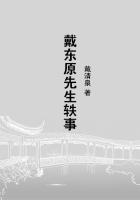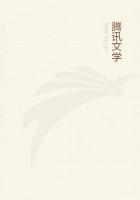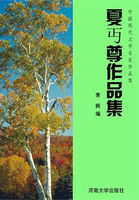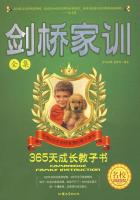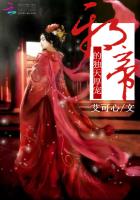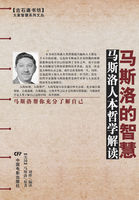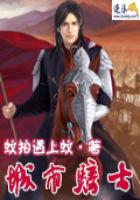An interesting fact in regard to the different varieties of the short story among us is that the sketches and studies by the women seem faithfuller and more realistic than those of the men, in proportion to their number. Their tendency is more distinctly in that direction, and there is a solidity, an honest observation, in the work of such women, which often leaves little to be desired. I should, upon the whole, be disposed to rank American short stories only below those of such Russian writers as I have read, and I should praise rather than blame their free use of our different local parlances, or "dialects," as people call them. I like this because I hope that our inherited English may be constantly freshened and revived from the native sources which our literary decentralization will help to keep open, and I will own that as I turn over novels coming from Philadelphia, from New Mexico, from Boston, from Tennessee, from rural New England, from New York, every local flavor of diction gives me courage and pleasure. Alphonse Daudet, in a conversation with H. H. Boyesen said, speaking of Tourguenief, "What a luxury it must be to have a great big untrodden barbaric language to wade into! We poor fellows who work in the language of an old civilization, we may sit and chisel our little verbal felicities, only to find in the end that it is a borrowed jewel we are polishing. The crown-jewels of our French tongue have passed through the hands of so many generations of monarchs that it seems like presumption on the part of any late-born pretender to attempt to wear them."
This grief is, of course, a little whimsical, yet it has a certain measure of reason in it, and the same regret has been more seriously expressed by the Italian poet Aleardi:
"Muse of an aged people, in the eve Of fading civilization, I was born.
. . . . . . Oh, fortunate, My sisters, who in the heroic dawn Of races sung! To them did destiny give The virgin fire and chaste ingenuousness Of their land's speech; and, reverenced, their hands Ran over potent strings."
It will never do to allow that we are at such a desperate pass in English, but something of this divine despair we may feel too in thinking of "the spacious times of great Elizabeth," when the poets were trying the stops of the young language, and thrilling with the surprises of their own music. We may comfort ourselves, however, unless we prefer a luxury of grief, by remembering that no language is ever old on the lips of those who speak it, no matter how decrepit it drops from the pen.
We have only to leave our studies, editorial and other, and go into the shops and fields to find the "spacious times" again; and from the beginning Realism, before she had put on her capital letter, had divined this near-at-hand truth along with the rest. Lowell, almost the greatest and finest realist who ever wrought in verse, showed us that Elizabeth was still Queen where he heard Yankee farmers talk. One need not invite slang into the company of its betters, though perhaps slang has been dropping its "s" and becoming language ever since the world began, and is certainly sometimes delightful and forcible beyond the reach of the dictionary. I would not have any one go about for new words, but if one of them came aptly, not to reject its help. For our novelists to try to write Americanly, from any motive, would be a dismal error, but being born Americans, I then use "Americanisms" whenever these serve their turn; and when their characters speak, I should like to hear them speak true American, with all the varying Tennesseean, Philadelphian, Bostonian, and New York accents. If we bother ourselves to write what the critics imagine to be "English," we shall be priggish and artificial, and still more so if we make our Americans talk "English." There is also this serious disadvantage about "English," that if we wrote the best "English" in the world, probably the English themselves would not know it, or, if they did, certainly would not own it. It has always been supposed by grammarians and purists that a language can be kept as they find it; but languages, while they live, are perpetually changing. God apparently meant them for the common people; and the common people will use them freely as they use other gifts of God. On their lips our continental English will differ more and more from the insular English, and I believe that this is not deplorable, but desirable.
In fine, I would have our American novelists be as American as they unconsciously can. Matthew Arnold complained that he found no "distinction" in our life, and I would gladly persuade all artists intending greatness in any kind among us that the recognition of the fact pointed out by Mr. Arnold ought to be a source of inspiration to them, and not discouragement. We have been now some hundred years building up a state on the affirmation of the essential equality of men in their rights and duties, and whether we have been right or been wrong the gods have taken us at our word, and have responded to us with a civilization in which there is no "distinction" perceptible to the eye that loves and values it. Such beauty and such grandeur as we have is common beauty, common grandeur, or the beauty and grandeur in which the quality of solidarity so prevails that neither distinguishes itself to the disadvantage of anything else. It seems to me that these conditions invite the artist to the study and the appreciation of the common, and to the portrayal in every art of those finer and higher aspects which unite rather than sever humanity, if he would thrive in our new order of things. The talent that is robust enough to front the every-day world and catch the charm of its work-worn, care-worn, brave, kindly face, need not fear the encounter, though it seems terrible to the sort nurtured in the superstition of the romantic, the bizarre, the heroic, the distinguished, as the things alone worthy of painting or carving or writing. The arts must become democratic, and then we shall have the expression of America in art; and the reproach which Arnold was half right in making us shall have no justice in it any longer; we shall be "distinguished."

